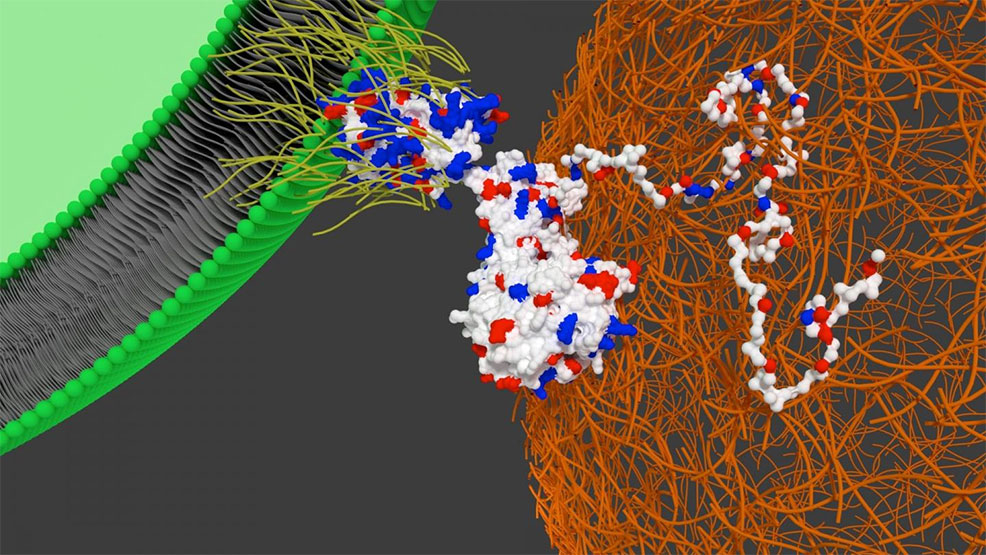“Researchers from the University of Bristol have reported a new way to direct stem cells to heart tissue, using a designer adhesin protein.
The breakthrough, published in the open access journal Chemical Science, could radically improve the treatment for cardiovascular disease, which causes 29% of all deaths worldwide.
In recent years, trials using stem cells – grown from a patient or donor and injected into the patient’s heart to regenerate damaged tissue – have produced promising results. However, while these next generation cell therapies are on the horizon, a number of challenges associated with the distribution of stem cells have remained. High blood flow in the heart combined with ’tissue sinks’, which circulating cells encounter, means the majority of stem cells end up in the lungs and spleen.
Now, researchers from Bristol’s School of Cellular and Molecular Medicine have found a way to overcome this, by modifying stem cells with a special protein so they ‘home’ to heart tissue…”
Read More: https://www.futuretimeline.net/blog/2019/07/4.htm

